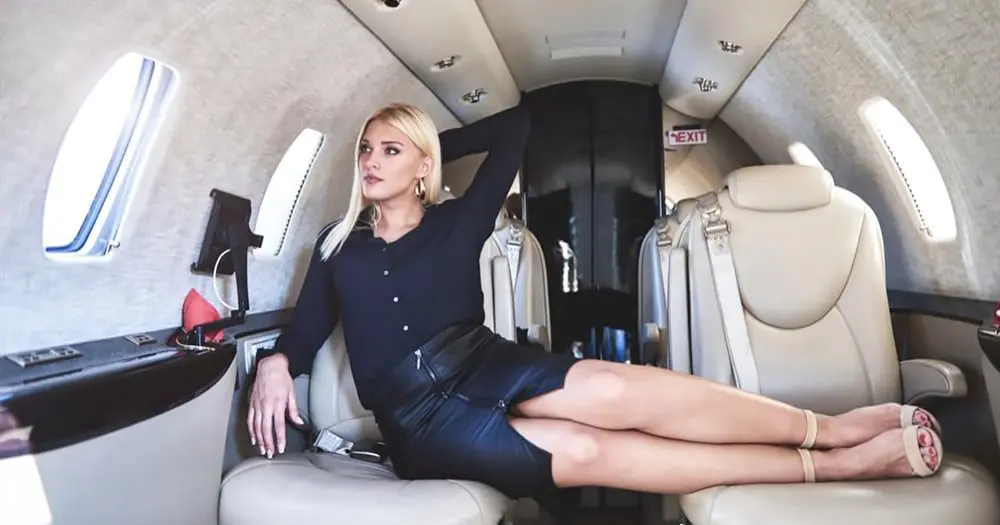Influencers Rent Fake Jets for Social Media Prestige
In the age of social media, where appearances often outweigh reality, influencers are consistently on the hunt for the next big spectacle to captivate their audiences. As platforms like Instagram and TikTok become stages for curated lifestyles, the lengths to which these content creators go to project success have become increasingly extravagant—and sometimes, entirely fabricated. One such trend involves renting fake jets, providing an illusion of luxury that promises prestige but raises questions about authenticity.
The Illusion of Luxury: Fake Jets for Social Media

In the digital realm, where a photograph can be worth a thousand likes, the allure of luxury is hard to resist. Private jets, long considered a symbol of wealth and exclusivity, have emerged as a sought-after backdrop for influencers eager to project an image of opulence. However, as not all social media stars have the means to afford such extravagance, some have turned to a peculiar alternative: renting fake jets. These staged settings, often located in warehouses or studios, offer the perfect façade of jet-setting luxury without ever leaving the ground.
The concept is simple. Companies have begun to offer meticulously designed airplane interiors, engineered to mimic the look and feel of a private jet. Equipped with plush seating, sleek design elements, and sometimes even functioning tarmac staircases, these sets are rented out by the hour, allowing influencers to capture the perfect shot that suggests a life of high-flying adventure. The result is an image that exudes wealth, power, and sophistication—all without the hefty price tag of actual travel.
Yet, this practice raises ethical questions regarding authenticity and the potential deception of followers. While some followers might appreciate the creativity and recognize the setup as part of an influencer’s brand, others could feel misled by the false representation of wealth. This dichotomy poses a challenge for influencers: how to strike a balance between aspirational content and transparency in an era where both are highly valued by audiences.
Influencers Chase Prestige with Phony Private Flights

For influencers, the pursuit of prestige on social media is deeply intertwined with the notion of status. The imagery associated with private jets is not merely about travel; it symbolizes a lifestyle that many aspire to. By renting fake jets, influencers tap into this aspiration, using the powerful visual to elevate their personal brand and command attention in a crowded digital space. It is a calculated move aimed at amplifying their perceived success, thereby attracting more followers, brand deals, and potential collaborations.
The trend reflects a broader phenomenon where social media has become a currency of its own, with likes, shares, and comments translating into real-world opportunities. For influencers, the investment in a fake jet shoot can yield significant returns. The perception of having a lavish lifestyle can lead to partnerships with luxury brands, increased visibility, and an enhanced reputation. In this context, the cost of renting a faux jet is viewed as a strategic business expense rather than a frivolous indulgence.
However, the chase for prestige is not without its pitfalls. Audiences are becoming increasingly savvy, and the risk of being exposed as a “poser” is ever-present. Social media platforms are rife with detective work, as users scrutinize posts for inconsistencies and call out those who present a deceptive image. For influencers, the stakes are high. While a fake jet shoot might temporarily boost their profile, the potential damage to credibility could have lasting repercussions if followers feel deceived by the illusion.
As influencers continue to seek new ways to captivate and grow their audiences, the line between reality and fiction becomes increasingly blurred. The phenomenon of renting fake jets illustrates the lengths to which individuals will go to craft an image of luxury and success, raising important questions about authenticity in the digital age. As audiences become more discerning and demand transparency, influencers face the challenge of balancing aspirational content with honesty. Ultimately, the success of this illusion rests not only on the image created but also on the trust maintained with followers.



